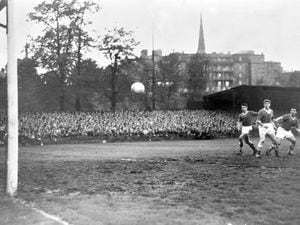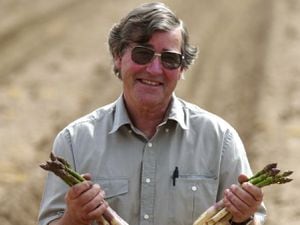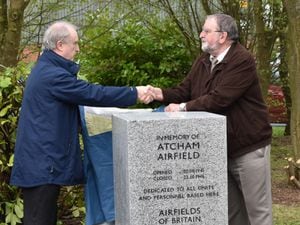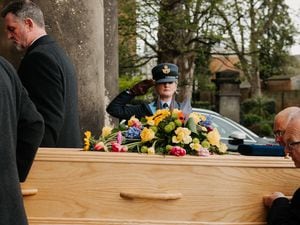A Coalport plate full of family memories
For all her long life Mrs Elsie Jones cherished a plate which was given to her as a memento shortly after she began work as a 13-year-old at the Coalport China Works.
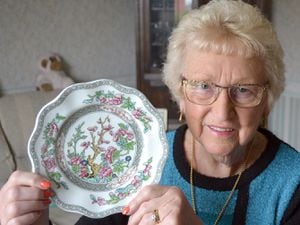
It was special to her as it was the first plate she had painted for the company, and it was signed on the back: "E. Lloyd. 27/7/14."
Today it is equally treasured, having passed down to her daughter, Mrs Mabel Finnigan of Coronation Crescent, Madeley.
It is a reminder of the days in the early years of the 20th century in which industries of the Ironbridge Gorge drew on child labour, and which are being used as the inspiration for the fourth annual literacy competition held by the Friends of the Ironbridge Gorge Museum.
Miss Elsie Lloyd, as she was before marriage to Alf Jones, was born in May 1901 and lived in a house directly opposite St Michael's Church in Madeley.
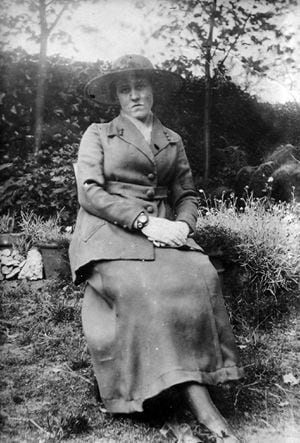
"She left school when she was 13 and went to work in the china works. She used to walk to work down the Coalport Road. She already had a sister working there, Lucy," said Mrs Finnigan.
"She was put in the paint shop. This plate has the date of July 27, 1914, on it, so I would have thought that she left school on the Friday and started work on the Monday.
"The first plate they ever painted was glazed and fired, and was given to them. She said she painted the leaves and things – I suppose the pattern was put on it.
"I think it was something she had to learn. She couldn't have had much training before painting that. She was always very proud of it.
"She worked there, I would say, until she was married and had her first child, which would be when she was about 20.
"She used to tell us tales about working there, such as when they came out of the gates there would be men standing there with little sticks and tapping their side, especially the men with long coats, in case they were carrying out any china.
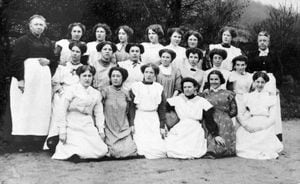
"She always used to say there was more china in the River Severn than there was in the shops, put there if they were going to be caught, although I doubt if she took any herself as mum wasn't like that.
"And she used to tell us about when the bones came from all the butchers around Shropshire. There was lorry loads of them on a Monday morning. The smell was terrible. They had to be boiled and then they were dried and crushed for the china.
"She used to say that the ladies who did that were old and used to have big leather aprons on."
Another of Elsie's stories was of having to catch the ferry in the morning, and if she missed it having to run all the way over the Free Bridge to get to the other side – although as going to the china works did not involve crossing the river for Elsie, maybe she was going over for another reason, or was relating another worker's predicament.
Elsie married Alf Jones and from then on the business of having 13 children was work enough.
"Our mum was a duchess. I never heard her swear and never saw her lose her temper. She was a lady all her life," said Mrs Finnigan.
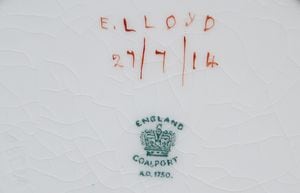
Elsie died aged 95, so about 1996, breaking one of the last living links to the old China Works.
Mrs Finnigan, who is 83, herself worked in the Ironbridge Gorge in wages at the Coalbrookdale Works, and has a particular childhood memory of the old family home.
"We all went to the CofE school next door to the house and my gran was a bit strict and if they were playing ball in the school yard and it went over she would not throw the balls back again. So they used to ask me to go and get it back, so I used to go quietly through the gate, duck under the window and round the back, find the ball, and throw it back."


